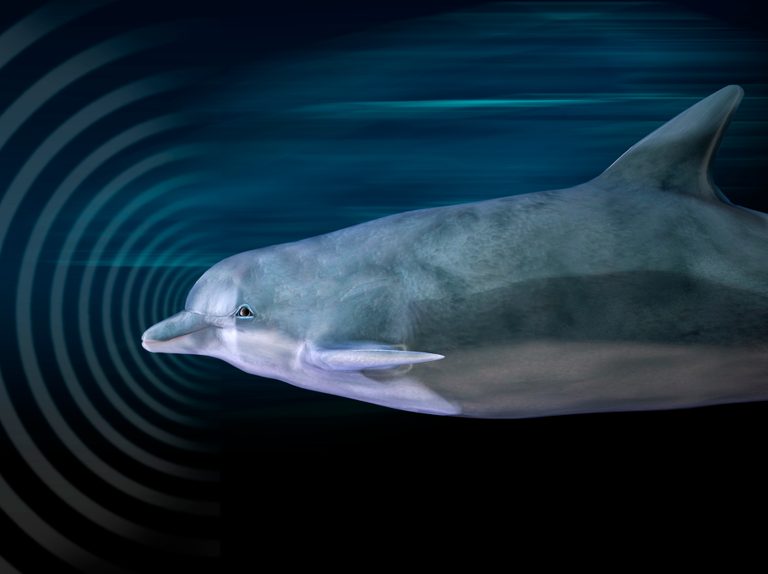Hi everyone! For this week’s blog post, I wanted to talk about something that I have always found really interesting and try to see if there was a way that technology could relate to it. After looking through some recent AI and technology discoveries, I found an article and concept that I didn’t know existed. It is related to animals and how there is some form of technology that is being tested to see how we, as humans, can understand what the animals are saying or even try to communicate with them.
Some background on the subject:

There are so many different facts from research and information about how animals talk amongst their own species. One of the most common examples that I could think of would be how dolphins use echolocation to communicate with each other. This is something we know, but we don’t necessarily understand what’s the purpose of the echolocation or what exactly is being said. I found an article, that I will be quoting throughout this post, that relates to artificial intelligence and how we can use it to try to either communicate with animals or try to find out what they are saying.
Article: https://bigthink.com/life/artificial-intelligence-animal-languages/
According to the article, “AI-powered analysis of animal communication includes data sets of both bioacoustics, the recording of individual organisms, and ecoacoustics, the recording of entire ecosystems, according to experts”. This is something that I thought was unique because originally, I questioned what AI could use in order to try to even start to interpret something from the animals. This led me to also think about whether audio could potentially be important to AI, and what is the result of the audio that the AI is picking up on.
Results:
After reading through the article about how the AI would work in order to learn about how the animals communicate, there were some really great results that came from the AI. The article states, “AI analysis of animal communication has also been used to help establish marine animal protection zones” and that this can help “predict potential coalitions between animals and ships”. This result shows that AI already had a massive impact on helping animals. If humans can use AI to be mindful of where marine animals’ habitats are located, it can change the lives of the animals that are impacted and hurt through human activity.
Another perspective:
Even though there are so many different opinions on AI, I think that most people usually debate over AI in regard to how it impacts humans. This shows that AI could be used in a way that wouldn’t just relate to one species or to a group of people who can easily access AI. According to the article, “Today, AI is being used to study animal communication, with researchers aiming to decipher animal languages in support of conservation and sustainability efforts”. For me, the benefits of AI in this situation would be more valuable to focus on rather than worrying about how AI can affect us. Additionally, the article states that AI is useful in order to “record sound in previously inaccessible habitats like deep seas and mountain tops”. If AI can assist in something that humans have been struggling with for long periods of time, such as exploring the ocean, I believe that it’s important to try to keep up with AI and to have more opportunities to be able to work with AI for people. What do you think about this?
One issue with using AI for a purpose not related to humans would be how this would affect the animals that are being studied for the AI. According to the article, “There are ethical concerns that researchers are confronting, too. This includes, most notably, the possibility of doing harm by establishing two-way communication channels between humans and animals”. I think that if eventually, we figure out a way to fully understand and be able to communicate with the animal species that are being studied, there should be some form of laws in order to make sure that that only reason why people are working with the animals is to try to either protect the animals’ habitat or to create awareness for the species.
Conclusion:
This was a really exciting topic to be able to learn about during the blog post. While researching communicating with animals through AI, I have thought about a lot of different questions about how this would be beneficial to do. One of the questions that I thought about was whether the AI that would be created to communicate with the animals would work on animals that migrate or would it only work on a specific group of animals that are local to a certain location? Let me know what you all think.
Thanks,
Jhanvi Desai
Citations:
Article: Feingold, Spencer. “How Artificial Intelligence Is Helping Us Decode Animal Languages.” Big Think, 21 Jan. 2023, https://bigthink.com/life/artificial-intelligence-animal-languages/.
Picture of echolocation: Price, Jo. “What Is Echolocation and Which Animals Use It?: BBC Wildlife Magazine: Discover Wildlife.” BBC Wildlife Magazine | Discover Wildlife, 19 May 2022, https://www.discoverwildlife.com/animal-facts/what-is-echolocation/.